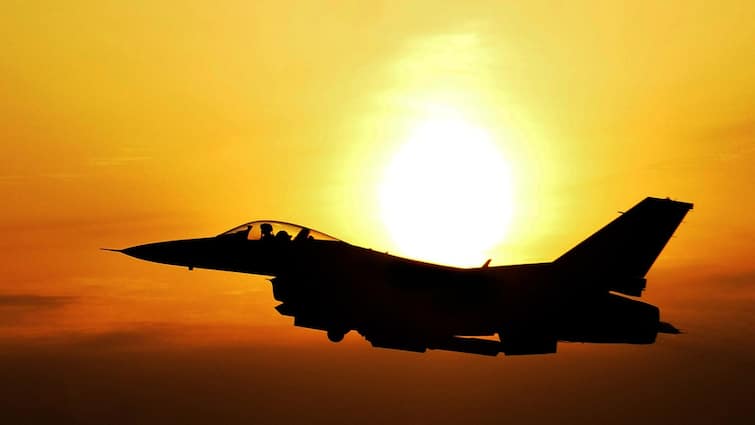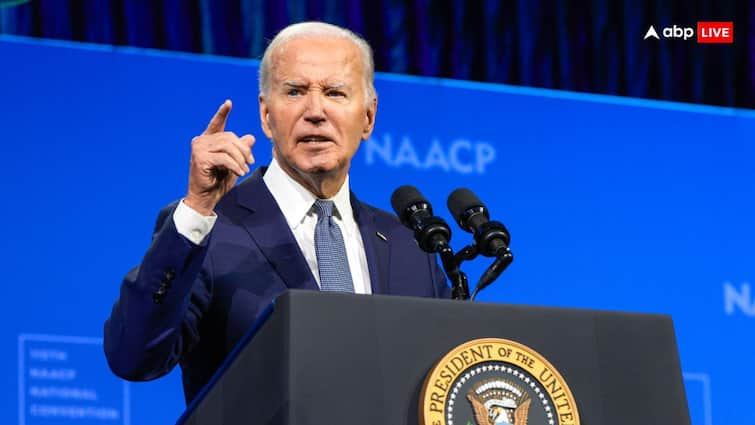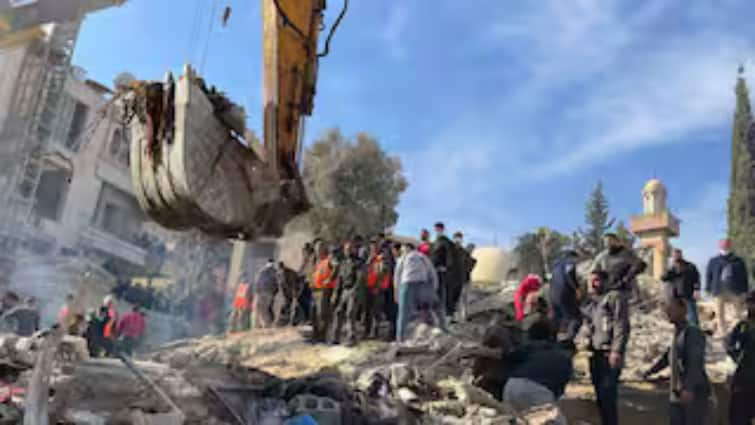Pakistan had expressed happiness over the formation of Taliban government in Afghanistan for the second time. But now this Pakistan is threatening Afghanistan to retaliate. The reason for this is Tehreek-e-Taliban Pakistan (TTP) terrorist organization. This terrorist organization has a strong hold on both sides of the Afghan-Pakistan border, and is fighting against the Pakistani Border Security Force. TTP wants to establish a strong political hold through armed struggle.
At present, tension has increased due to TTP attacks. It seems that after 14 years, Pakistan will once again face security threats due to TTP. Recall that on September 20, 2008, domestic insurgency was at its peak in Pakistan. Pakistan had held TTP responsible for this rebellion.
According to an Afghanistan-based news outlet, ever since the Taliban returned to power in Afghanistan, terrorist activity has increased significantly in Pakistan. Experts say that earlier Pakistan itself was training the Taliban to carry forward terrorist activities in India, but the same Taliban regime has now challenged Pakistan.
A few days ago, Pakistan’s Interior Minister Rana Sanaullah Khan asked the Afghan-Taliban government to destroy terrorist bases on Afghan soil and hand over the terrorists to the security forces, otherwise Pakistan can carry out airstrikes on Taliban bases in Afghan territory to control cross-border terrorist activities.
In response to the minister’s statement, the Taliban spokesman said that one nation cannot violate the sovereignty of another nation and that Pakistan’s government officials should keep these things in mind while speaking in order to maintain the dignity of the country and its relations.
According to the reports, TTP wants to capture Pakistan in the same way as it has done in Afghanistan. Several bomb blasts have been reported in the Afghan-Pakistan border areas in the last few weeks. After the continuous attack, America also had to intervene. The question is, will Pakistan be able to prevent these attacks from reaching the capital this time? Or Pakistan and Afghanistan will go towards war.
First understand how TTP was formed and what is the story of its strengthening in Pakistan
Tehreek-e-Taliban Pakistan (TTP) is an illegal organization in Pakistan. It was founded in 2007 as a group of Islamic terrorists. The roots of TTP are linked to the Afghanistan war. Apart from fighting the West in Afghanistan, this organization has also opposed the Pakistani state.
According to the United Nations, the TTP also maintains several thousand fighters in Afghanistan, whose stronghold is on both sides of the Afghanistan-Pakistan border. The roots of TTP began to emerge after the 2001 US invasion of Afghanistan following intra-jihadi politics.
The TTP claims that the purpose of its armed struggle is to promote Sharia law and establish an Islamic political system in Pakistan. TTP believes that this is such a work which was the biggest goal at the time of establishment of Pakistan in 1947. In the name of achieving this objective, TTP has done large scale bloodshed in Pakistan.
Tehreek-e-Taliban Pakistan (TTP) and its affiliated terrorist groups killed a total of 179 people in Pakistan in 2022.
In 2023, TTP killed more than 100 people in a mosque in Peshawar in January. This attack is believed to be the biggest attack in recent years. There was also news of at least a dozen or more casualties in this TTP attack.
In December 2007, the TTP killed Benazir Bhutto, the former Prime Minister of Pakistan, whose government had helped the Taliban. General Pervez Musharraf’s hand in Bhutto’s assassination came to light, but later a 16-year-old boy affiliated with the TTP in eastern Afghanistan confessed that he was at the scene wearing a suicide vest ready as a backup. If Benazir had escaped from Fidayeen first, he would have killed her.
In 2014, TTP did another big attack. He targeted a military school in Peshawar. In that attack, more than 150 people including 132 children lost their lives.
Pakistan trapped in the web of terror
With terrorist violence killing hundreds of people every year, Pakistan is certainly becoming a victim of its own homegrown terrorism. Pakistan has been supporting terrorism as a state policy for decades. The same TTP which is killing hundreds of Pakistanis today, which was supported by Pakistan for years, the same Taliban which is refusing to remove TTP safe houses inside Afghanistan was supported by Pakistan. then prime minister Imran Khan publicly celebrated the Taliban’s takeover of Afghanistan.
Now Taliban is threatening to spoil relations with Pakistan as well as not taking action against TTP. Writing on Pakistan’s ties to terror, expert Bill Rozio wrote in The Sunday Guardian that Pakistan has played a double game between the United States and terrorist groups. As a result of which he has to suffer.
He wrote “Pakistan has helped the United States capture and kill top Al Qaeda leaders and operatives who have taken refuge in the country, but it has played a double game by providing funding, arms, advice, training and safe haven to the Afghan Taliban. The Afghan Taliban have also drawn support from Pakistan for Al Qaeda and other terrorist groups.”
Pakistani knew that supporting Taliban was a direct threat to the people of his country as well, yet it continued to support as a strategy so that terrorist attacks could be carried out in India.
According to the news published in Outlook, Rozio, senior fellow of the Foundation for Defense of Democracies (FDD), said, ‘This wheel of terror continues unabated even today. Now Pakistan is scared of facing its consequences.
TTP’s relations with Taliban become a headache for Pakistan
When the Taliban rule was formed in Afghanistan for the second time, Pakistan had expressed happiness. He was also hopeful that the Taliban government would crack down on TTP. But the Tehreek-e-Taliban Pakistan (TTP) and the Afghan Taliban have had old ties.
The TTP claimed to be an extension of the Afghan Taliban at the time of its inception. In a report published in The Long War Journal, it has been told that both TTP and Afghan Taliban have helped each other over the years.
Meanwhile, the TTP – whose sole aim is to establish Islamic law in Pakistan as its allies have done in Afghanistan, is mercilessly attacking the citizens of Pakistan to achieve the same objective.
Please tell that there are Pashtun Muslims in Taliban and Pakistan Taliban. In the 1990s, the Soviet Union intervened in Afghanistan. Then all the Afghans had come to Pakistan. The Taliban captured Kabul for the first time in 1996, and the Pakistani Taliban helped the Afghan Taliban.
In the year 2001, America started expelling the Taliban, then the Afghan Taliban had taken shelter in the same border areas of Pakistan, where the roots of Pakistan Taliban were already grounded. At the same time, when the government was formed again in 2021, the Taliban had released hundreds of TTP people from Afghan jails.
Please tell that the border area of Pakistan Army is dominated by Punjabis and Sindhis. The people there are more angry about TTP, but TTP is trying to establish its rule in Pakistan just like Afghan Taliban.
The history of Pakistan and Afghanistan has also played a role in this whole story. The Durand Line demarcates the border between the two countries, the Afghans believe that the British decided this border arbitrarily and the border Pashtun areas in Pakistan should actually be in Afghanistan. The same is the attitude of the Afghan Taliban. It is not easy for Pakistan to overcome these aspects of the relationship between TTP and Afghan Taliban.
Can Pakistan attack Afghanistan to control TTP?
On January 30, the Tehrik-e-Taliban (TTP) attacked a mosque in the high-security Police Lines area of Peshawar. More than 100 people were killed and more than 200 were injured, most of the casualties were security personnel including officers. The TTP has intensified attacks on police stations and security establishments in Pakistan in recent days.
Till November last year, the TTP was in talks with the Pakistani government, but then announced the end of the ceasefire and declared aggression against Pakistani states. Hundreds of people have been killed since then.
The Government of Pakistan hoped that the coming to power of the Taliban in Kabul would help in controlling the TTP, but this has not happened. Top Pakistani ministers have visited Kabul, but no concrete agreement has been reached so far. Pakistanis are nervous and desperate for relief as they grapple with the double whammy of a financial and security crisis.
Pakistan is now reminding the Afghan Taliban of the 2020 Doha Agreement. This agreement was made under the Doha Agreement, Afghanistan will not allow any terrorist group to work from its territory. On being reminded of the Doha Agreement, the Taliban government has said that TTP people are not in its area. He also said that the Doha Agreement was signed with America and not with Pakistan.
On such attitude of Afghanistan, Pakistan’s Defense Minister Khwaja Asif has said that Afghanistan is forgetting its duty of being a ‘neighboring and friendly country’. 50-60 lakh Afghan people had taken refuge in Pakistan for 40-50 years. On the other hand, terrorists who shed the blood of Pakistanis are getting shelter in Afghanistan. All this will not be allowed to go on. We can take action against terrorists even while living in our area.
On the other hand, after the TTP attack in Peshawar on 12 July, General Munir warned the Afghan Taliban on 14 July. Munir said that the Pakistan Army will take ‘effective action’ if appropriate steps are not taken from the Afghan side. General Munir also called a meeting of the Corps Commanders of the Army. Due to the tightening attitude, it seems that the Pakistan Army may take action in the border areas of Afghanistan and if this happens, the Taliban will remain silent, it does not seem so.




